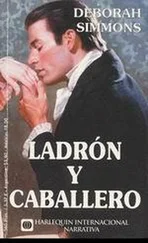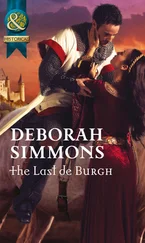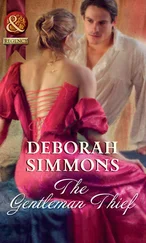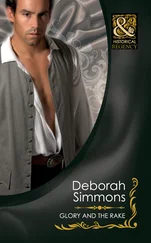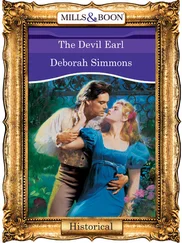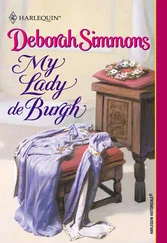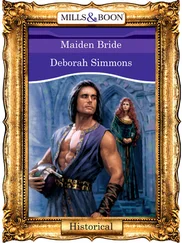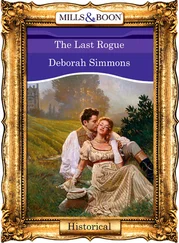Although Campion was obviously above the kind of boisterous behavior of the others, he was nonetheless pleased to see his sons. It was evident in his smile and in his voice when he spoke their names. “Simon, Geoffrey,” he said, his tone low and rough with the measure of his affection. And then, while Marion looked on in astonishment, the elegant earl opened his arms and loosely clasped the towering body of the mail-clad Simon.
Marion’s longing returned in a rush, more piercing this time. Had she ever been part of such a family? She watched, fascinated, as the earl did the same with Geoffrey. Then, suddenly, Campion’s attention was upon her. His brows lifted a fraction in polite curiosity, and she nodded her greeting before bending her head, anxiety curling in her breast.
“Sir, we came upon a pack of thieves attacking the Lady Marion’s train,” Geoffrey explained. “Although we dispatched them, we were not in time to save her injury. She was thrown into the roadway and now knows not her own name. All of her people were either slain or fled in fright, so we have offered her our protection until she might regain her...health.”
“My lady,” Campion said, bowing slightly in a formal salute. “We shall be pleased to have you with us. It has been too long since a damsel has graced our hall. I am Campion, and these are my sons,” he said, lifting a hand to take in the group.
“You have met Simon and Geoffrey. May I introduce Stephen,” he said, and another de Burgh stepped forward, this one with a lock of the familiar dark hair hanging loosely over his forehead. He had a different air about him than Simon or Geoffrey, a careless attitude that did not seem to fit Campion’s line.
“My lady,” Stephen said. He flashed white teeth in a mocking grin, and she decided he was too handsome for his own good.
“Robin, my lady.” A man of about twenty years spoke this time. His hair was a shade lighter than the rest, and his friendliness was genuine, as if he were paying court to her. Marion nodded her greeting with pleasure.
“Reynold.” More gaunt than the others and walking with a stiff gait, as though one leg pained him, came Reynold. Although he appeared to be younger than Robin, he seemed angry and bitter beyond his years. He did not return her smile.
“And, finally, Nicholas.” At the earl’s words, no one stepped forward, and Campion repeated the name with just a hint of exasperation. Marion almost laughed aloud then as the youngest de Burgh bounded toward her. He was probably no more than fourteen, a softer, smaller version of his brothers.
“Yes, sir?”
“Please meet our guest,” Campion directed with a nod toward Marion.
“Greetings!” Nicholas said, eyeing her up and down with the eager curiosity of the young. She could see that he was bubbling over with questions for her, but apparently his father also recognized the signs, for he quickly forestalled the interrogation with a reproving look.
Campion then glanced around the hall. “Wilda,” he called. Although he did not raise his voice, a young servant girl was soon at his elbow.
“Yes, my lord?” She spoke respectfully, yet with a sincerity that caught Marion’s attention. She realized that even the servants went about their work with pride here at Campion. It was a situation that struck Marion as oddly unusual, but she could not say why.
“This lady will be staying with us,” Campion said. “Please show her to a room with a hearth, and send something up from the kitchens for her. ‘Tis late, and she will wish to seek her rest after the long journey.”
“Yes, my lord.” Wilda nodded warmly, the casually given welcome touching Marion to the bone. Although she realized that she had been graciously dismissed, Marion could not leave yet. Ignoring the urge to scurry away, she turned to face the earl.
“My lord, I cannot thank you enough for your hospitality. I promise you that you shall not regret it,” Marion said. Then she did hurry after Wilda, before he could change his mind about letting her stay.
She had seen little enough of the castle and its inhabitants, but Marion liked what she saw. Although big and gruff, the de Burgh brothers were handsome and appealing, their father was gentle and kind, and his people were happy. It seemed to Marion’s dazed senses that the very walls reached out to her in welcome.
Already, Campion seemed like home.
* * *
“Come, I have ordered some food and drink for you two,” the earl said to his returning sons.
“And me, too, sir!” Nicholas said.
Campion smiled at his youngest. “For all of us, then.”
Although supper had been cleared away, he sent a servant for bread, cheese, apples and ale. Once these were brought and they were all seated at the high table, Campion nodded toward Simon to speak. He listened intently as his warrior son reported on his trip south to collect monies from a recalcitrant tenant.
“Then, on the way home, when we were hurrying against winter’s winds, we came across a small band being attacked by murderous thieves. We killed the devils, but some of our men were injured in the skirmish,” Simon said.
“The odd thing is, the ruffians were not your usual bandits. They fought very well, like trained soldiers,” Geoffrey put in, “and on fine horseflesh, far better than you would expect such men to own.”
Simon snorted his dispute. “They fought to the death, as the bastards will when cornered, ‘tis all.”
The earl glanced back at Geoffrey, but the boy said nothing further, deferring instead to his brother, as usual. It was not Geoffrey’s way to argue, and yet Campion knew that his scholarly son was probably speaking the truth. Geoffrey might not be as bold as Simon, but he noticed things. He sat back, watched, assessed and made his plans accordingly. That was his strength, and that was why Campion often sent him to accompany his more single-minded brother.
“Some members of the attacked train fled into the woods,” Simon said with a scowl of contempt. “They appeared to be youths hardly fit for working in the fields, let alone escorting a female of any consequence. The only remaining survivor was the woman. When we revived her, she could not tell us who she was, nor did she or the caravan have any colors or clues to identify them.”
Geoffrey spoke up again. “‘Tis plain she is a lady, sir, by the quality of her clothes and by her bearing and speech. I talked with her at length on the road, and she is well educated. She can read and write and has some knowledge of accounts, too.”
“And yet she does not remember her own name?” Campion asked.
“No, sir,” Geoffrey said. Campion held his gaze for a moment, a silent question passing between them, but Geoffrey did not flinch. Without putting the query into words, Campion knew his son believed the woman spoke the truth. Campion then glanced at Simon, to get his opinion, but the older brother obviously did not think the lady worthy of further conversation. He was already fiddling with his scabbard, impatient to be off.
“And who christened her? You?” Stephen asked, laughing at his own jest. Campion shot him a look and did not miss the replenished wine cup in his hands. Stephen was becoming difficult.
“We have called her Marion,” Geoffrey said, ignoring Stephen’s contemptuous chuckling, “for we found the name in one of her books.”
“Oh! And are you smitten with her, brother?” Stephen taunted.
“Geoffrey’s in love!” Nicholas shouted. A round of jeering followed that announcement, and Campion let it play itself out. He could tell with one glance at Geoffrey’s disgusted expression that his son had no interest in the girl other than compassion.
“No?” Stephen said. “Then perhaps ‘tis our Simon who has felt Cupid’s prick?” There was some laughter at Stephen’s play on words. Lord, he was a clever boy. If only he would use it to advantage, instead of wasting it. “Our good brother likes his women short and well rounded, I see!”
Читать дальше

